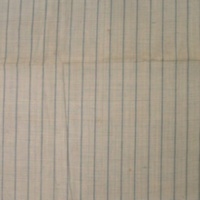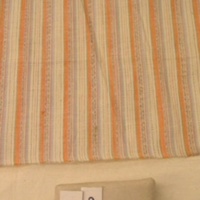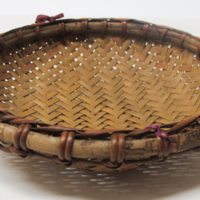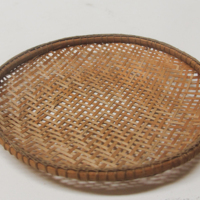Philippine Textile
Text
Share this
Media
Images
Map RISD Museum of Art
Metadata
Subject
Textiles, Fabric, Cotton, Cloth, Tassles, Fringes, Weaving
Date
Undated
Contributor
Courtesy of Rhode Island School of Design Museum, Providence RI
Rights
The images on this website can enable discovery and collaboration and support new scholarship, and we encourage their use. This object is in Copyright. This object is textile with the accession number of 46.222.
To request high-resolution files or new photography, please send an email to [email protected] and include your name and the object's accession number.
The Copyrighted Image was requested and provided via Jpeg pdf email. Courtesy of RISD Museum, Providence RI. Email receipt, date: 01.20.2022
To request high-resolution files or new photography, please send an email to [email protected] and include your name and the object's accession number.
The Copyrighted Image was requested and provided via Jpeg pdf email. Courtesy of RISD Museum, Providence RI. Email receipt, date: 01.20.2022
Type
Textiles
Identifier
46.222
Origin
Philippines
Materials
MATERIALS : Cotton
TECHNIQUES : No information given
TECHNIQUES : No information given
Physical Dimensions
68.6 cm (27 inches) (width)
Provenance
Gift of Marshall H. Gould
Acquisition Date
No Information was given, unspecified
Display status
Not on display
Acknowledgements
Contributed by Noel Jordan Racca
Photo and Information Courtesy of Rhode Island School of Design Museum, Providence RI
Photo and Information Courtesy of Rhode Island School of Design Museum, Providence RI
Official Website
Collection
Source
Accessed on RISD Museum, February 4, 2022
Copied without revision
Copied without revision
Cite this Page
“Philippine Textile,” Mapping Philippine Material Culture, accessed April 20, 2024, https://philippinestudies.uk/mapping/items/show/15405.
Geolocation
Sensitive Content
Mapping Philippine Material Culture collates digital material from institutions, and some of this material is inherently colonial and contains words, terms and phrases that are inaccurate, derogatory and harmful towards Filipino and Filipino diasporic communities. Catalogue transcriptions, book titles, exhibition titles and museum titles may contain harmful terms. We recognise the potential for the material to cause physical and mental distress as well as evoke strong emotions. Owing to the scale of the collection’s data, a process to implement sensitive-content warnings in the displayed data is still incomplete. The material within the catalogue does not represent Mapping Philippine Material Culture’s views. Mapping Philippine Material Culture maintains a strong anti-colonial, anti-racist position and affirms its support for centring the humanity of historically marginalised and disenfranchised communities.
Facebook Twitter



